第25章
It is not necessary that in ceasing to ignore the moral truths not contained in Christianity men should ignore any of those which it does contain. Such prejudice, or oversight, when it occurs, is altogether an evil; but it is one from which we cannot hope to be always exempt, and must be regarded as the price paid for an inestimable good. The exclusive pretension made by a part of the truth to be the whole, must and ought to be protested against; and if a reactionary impulse should make the protestors unjust in their turn, this one-sidedness, like the other, may be lamented, but must be tolerated.
If Christians would teach infidels to be just to Christianity, they should themselves be just to infidelity. It can do truth no service to blink the fact, known to all who have the most ordinary acquaintance with literary history, that a large portion of the noblest and most valuable moral teaching has been the work, not only of men who did not know, but of men who knew and rejected, the Christian faith.
I do not pretend that the most unlimited use of the freedom of enunciating all possible opinions would put an end to the evils of religious or philosophical sectarianism. Every truth which men of narrow capacity are in earnest about, is sure to be asserted, inculcated, and in many ways even acted on, as if no other truth existed in the world, or at all events none that could limit or qualify the first. I acknowledge that the tendency of all opinions to become sectarian is not cured by the freest discussion, but is often heightened and exacerbated thereby; the truth which ought to have been, but was not, seen, being rejected all the more violently because proclaimed by persons regarded as opponents. But it is not on the impassioned partisan, it is on the calmer and more disinterested bystander, that this collision of opinions works its salutary effect. Not the violent conflict between parts of the truth, but the quiet suppression of half of it, is the formidable evil; there is always hope when people are forced to listen to both sides; it is when they attend only to one that errors harden into prejudices, and truth itself ceases to have the effect of truth, by being exaggerated into falsehood. And since there are few mental attributes more rare than that judicial faculty which can sit in intelligent judgment between two sides of a question, of which only one is represented by an advocate before it, truth has no chance but in proportion as every side of it, every opinion which embodies any fraction of the truth, not only finds advocates, but is so advocated as to be listened to.
We have now recognised the necessity to the mental well-being of mankind (on which all their other well-being depends) of freedom of opinion, and freedom of the expression of opinion, on four distinct grounds; which we will now briefly recapitulate.
First, if any opinion is compelled to silence, that opinion may, for aught we can certainly know, be true. To deny this is to assume our own infallibility.
Secondly, though the silenced opinion be an error, it may, and very commonly does, contain a portion of truth; and since the general or prevailing opinion on any subject is rarely or never the whole truth, it is only by the collision of adverse opinions that the remainder of the truth has any chance of being supplied.
Thirdly, even if the received opinion be not only true, but the whole truth; unless it is suffered to be, and actually is, vigorously and earnestly contested, it will, by most of those who receive it, be held in the manner of a prejudice, with little comprehension or feeling of its rational grounds. And not only this, but, fourthly, the meaning of the doctrine itself will be in danger of being lost, or enfeebled, and deprived of its vital effect on the character and conduct: the dogma becoming a mere formal profession, inefficacious for good, but cumbering the ground, and preventing the growth of any real and heartfelt conviction, from reason or personal experience.